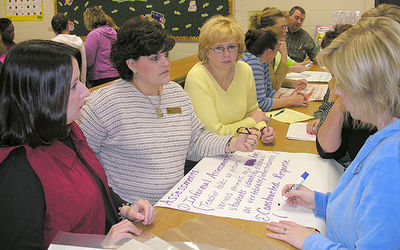Assessing and Evaluating for Learning
Exploring assessment principles and practices from a learner-centred perspective
The focus is on designing and facilitating assessment approaches that you can use in your context. The 2014 Course outline has information about the timetable and assessments. has information about the timetable and assessments.
This is a compulsory course within the Graduate Certificate in Tertiary Learning and Teaching - level 7 (GCTLT), delivered by the Teaching Team at Otago Polytechnic, Aotearoa New Zealand. Participants can formally enroll by emailing Teaching Team Enquiries.
|
To expose participants to a range of learner centred assessment theories, principles and practices which enable participants to design or select, and implement appropriate assessment tools.
|
At the successful completion of this course, participants will be able to:
- define and discuss assessment terminology and critically review own existing assessment and evaluation practices against current theories, principles and practices and demonstrate how these understandings inform practices;
- recognise, analyse and design a range of assessment tools and tasks which are valid, reliable, fair, useable and integrated, to support learning and be inclusive of student needs;
- explore and consider a range of culturally diverse assessments which includes alternative ways of assessing and supports the transfer of knowledge from one culture to another;
- construct and justify clear and specific assessment/marking criteria to support student learning;
- explore pre and post assessment moderation to provide a base from which to critique the role and impact of assessment and evaluation on student learning;
- demonstrate understanding and critically examine assessment policy and practices considering their appropriateness for meeting student needs;
- critique a variety of feedback models/processes and then provide clear, constructive feedback to support and advance student learning.
|


